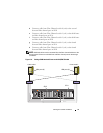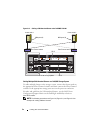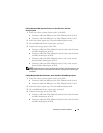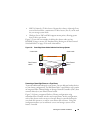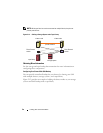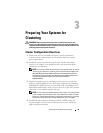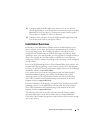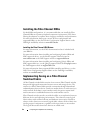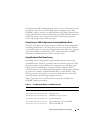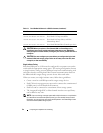
Preparing Your Systems for Clustering 39
Preparing Your Systems for
Clustering
WARNING: Only trained service technicians are authorized to remove and
access any of the components inside the system. See your safety information for
complete information about safety precautions, working inside the computer, and
protecting against electrostatic discharge.
Cluster Configuration Overview
1
Ensure that your site can handle the cluster’s power requirements.
Contact your sales representative for information about your region's
power requirements.
2
Install the systems, the shared storage array(s), and the interconnect
switches (for example, in an equipment rack), and ensure that all the
components are turned on.
NOTE: For more information on step 3 to step 7 and step 10 to step 13, see the
"Preparing your systems for clustering" section of Dell Failover Clusters with
Microsoft Windows Server 2003 Installation and Troubleshooting Guide or
Dell Failover Clusters with Microsoft Windows Server 2008 Installation and
Troubleshooting Guide located on the Dell Support website at
support.dell.com.
3
Deploy the operating system (including any relevant service packs and
hotfixes), network adapter drivers, and storage adapter drivers (including
Multipath I/O (MPIO) drivers) on each cluster node. Depending on the
deployment method that is used, it may be necessary to provide a network
connection to successfully complete this step.
NOTE: To help in planning and deployment of your cluster, record the relevant
cluster configuration information in the Cluster Data Form located at "Cluster
Data Form" on page 63 and the Zoning configuration information in the Zoning
Configuration form located and "Zoning Configuration Form" on page 61.
4
Establish the physical network topology and the TCP/IP settings for
network adapters on each cluster node to provide access to the cluster
public and private networks.



